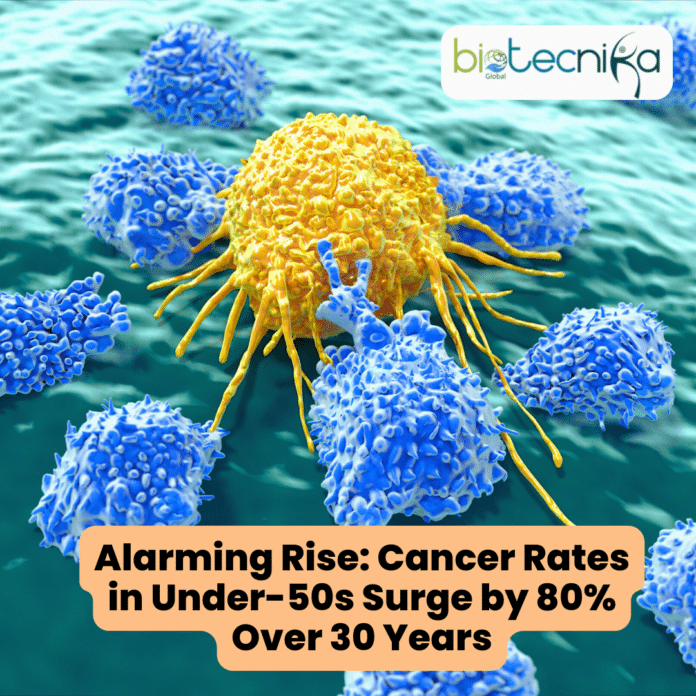Alarming Rise: Cancer Rates in Under-50s Surge by 80% Over 30 Years
Alarming Rise: Cancer Rates Surge 80% in Under-50s, New Global Study Reveals Cancer in Under-50s Has Jumped 80% in 30 Years According to a New Global Study Cancer is a growing concern for people under the age of 50, with new research showing a significant 80% increase in cancer cases over the past three decades. This surge in cancer diagnoses has resulted in 27.7% more deaths among this age group. These startling statistics come from a comprehensive study that analyzed data from 204 countries, focusing on 29 different types of cancer.
The study, conducted by researchers from Zhejiang University School of Medicine in China, challenges some common perceptions about the types of cancer affecting younger individuals. It underscores the urgency of early detection and targeted treatment, while also emphasizing the need for a preventative lifestyle. Between 1990 and 2019, cancer cases in 14 to 49-year-olds rose from 1.82 million to 3.26 million, a trend that experts predict will continue. By the year 2030, it is anticipated that there will be a 31% increase in new instances of early-onset cancer, which is defined as occurring before reaching the age of 50. This increase is also expected to be accompanied by a 21% rise in deaths related to such cancers.
Individuals between the ages of 40 and 49 are particularly susceptible to this type of risk. In the year 2019 alone, cancer claimed the lives of more than one million people under the age of 50. In the realm of cancer types, breast cancer accounted for the largest number of deaths, trailed by windpipe (nasopharynx), lung, bowel, and stomach cancers. Of particular significance is the fact that, despite breast cancer having the highest case count, windpipe and prostate cancers exhibited the most substantial surge in incidence since 1990. On the contrary, early-onset liver cancer diagnoses declined during this period.
Statistical expert Stephen Duffy from Queen Mary University of London has proposed that vaccination may play a role in shaping these patterns. “In the case of liver cancer, large numbers are caused by hepatitis B virus, for which there is effective vaccination, whereas for nasopharyngeal cancer, large numbers are caused by the Epstein-Barr virus, for which we do not have effective vaccination,” Duffy explains. While genetics do play a role in some cancer cases, many factors contributing to early-onset cancers are preventable. These include dietary choices (such as diets high in red meat and low in fruits), alcohol consumption, tobacco use, physical inactivity, exposure to air pollution, obesity, diabetes, and high blood sugar.
Previous studies have shown a rising incidence of cancer in adults under 50 since the 1990s, but these studies have primarily focused on regional differences. Insufficient research has been conducted to understand the specific risk factors for young individuals, the prevalence of cancer in different socioeconomic groups, or the global disease burden. A notable aspect of this study is its broad international perspective, shedding light on disparities among various regions and unveiling that the highest early-onset cancer rates are found in North America, Australasia, and Western Europe.
In contrast, lower- to middle-income nations grapple with distinct challenges, marked by the highest mortality rates in Oceania, Eastern Europe, and Central Asia, with a notable disproportionate impact on women. However, this study has some limitations, such as variations in data quality across countries, potential underreporting, and the unclear impact of screening and early-life environmental factors. Furthermore, it is essential to contextualize these discoveries within the backdrop of a steadily expanding population.
In conclusion, cancer remains a significant health challenge, especially among those under 50. Prevention through research and education is crucial in the fight against cancer, as it has a profound impact on people’s lives. The study’s findings underscore the importance of early detection, healthy lifestyle choices, and targeted interventions to combat this alarming rise in cancer rates among younger individuals.






